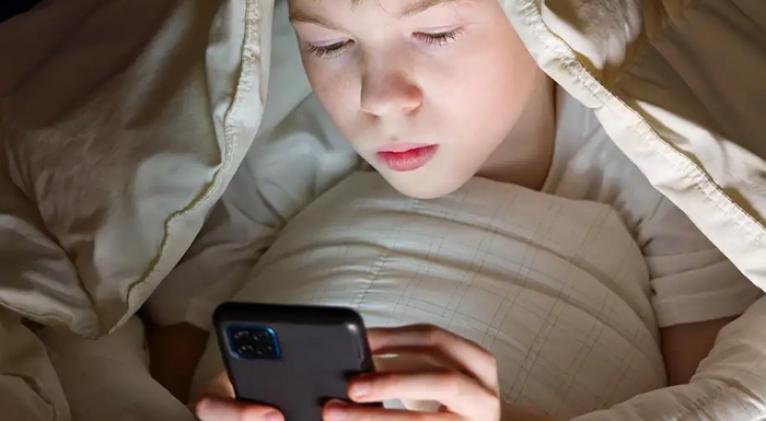Children Under 13 with Smartphones: A Trap in Their Hands
especiales

Teenagers and even children no longer ask for toys or outings as gifts. Instead, they want a smartphone.
While not universal, this trend is gaining momentum across diverse regions, driven by a reality increasingly intertwined with technology and artificial intelligence—a development that brings both benefits and drawbacks.
Focusing on the drawbacks, the study "Protecting the Developing Mind in the Digital Age: A Global Policy Imperative," based on data from the Global Mind Project and published this July in the Journal of Human Development and Capabilities, offers particularly relevant insights. This large-scale correlational analysis draws from previous reports, involving a sample of over 100,000 young adults aged 18 to 24 from various cultures and linguistic groups worldwide.
Mental Health and Smartphones
Generation Z, born between 1997 and 2012, was the first to grow up alongside smartphones and social media, immersed in a digital world. Given how this algorithm-driven environment, often accessed unsupervised via mobile phones, brings radical transformations in all aspects of life, the research team, led by Dr. Tara C. Thiagarajan, sought to understand its impact on early adult mental health when exposure begins in childhood.
Their retrospective examination of the link between the age at which a child first owned a smartphone and their current mental health yielded alarming results: "Childhood smartphone ownership—an early gateway to AI-driven digital environments—is profoundly deteriorating mental health and well-being in adulthood, with far-reaching consequences for individual autonomy and social development."
The researchers found that the younger a child was when they received a smartphone, the more severe the negative impacts in early adulthood, including higher rates of aggression, suicidal thoughts, feelings of detachment from reality, and diminished self-esteem, emotional control, and resilience.
Data analysis revealed that owning a smartphone before age 13 also leads to earlier access to social media (despite laws restricting its use for this age group), increasing the likelihood of cyberbullying, sexual abuse, weakened family bonds, and disrupted sleep.
Scores on the Mental Health Quotient (MHQ)—an online self-assessment tool evaluating 47 social, emotional, cognitive, and physical functions—dropped to 30 for those who acquired a smartphone at 13 and plummeted to just 1 for those exposed as early as age five.
Prevention
The study’s authors assert that the link between early smartphone ownership and poor mental health in early adulthood, significantly mediated by premature social media access, "presents a clear policy challenge, particularly in the context of rapidly evolving technology use."
"Our data show that smartphone ownership—and, by extension, social media access—in children under 13 is associated with increased symptoms and diminished functioning across multiple domains, with potential consequences extending beyond psychology to education, civic engagement, and economic opportunities."
If current trends continue, these factors alone could account for mental distress, suicidal ideation, dissociation from reality, and reduced emotional control and resilience in nearly a third of the next generation.
*"These findings suggest that restricting smartphone use in childhood, particularly social media access, could significantly strengthen capabilities and well-being by reducing clinically significant mental distress by up to 8.5% and suicidal thoughts by up to 20%, while improving emotional resilience and self-confidence by 12%."*
A Collective Responsibility
The researchers emphasize that this challenge cannot be addressed solely through individual parental decisions. Parents who restrict their children’s smartphone or social media access face the dilemma of either protecting their children or risking their social exclusion, especially in school settings.
Nor is it reasonable to leave the matter to children’s self-regulation. The AI behind social media platforms, the authors note, is designed to exploit psychological vulnerabilities, manipulating and overriding developing cognitive defenses—a significant challenge when the prefrontal cortex is still immature.
Policy Recommendations
The study proposes mandatory education in digital literacy and mental health, which should precede independent access to social media platforms—similar to driver’s education requirements—to foster informed and effective digital engagement.
It also suggests restricting access to social media platforms that encourage user-generated content and commenting, stating: *"Such platforms should be banned for children under 13 on all internet-connected devices."* The authors urge stronger age verification enforcement, holding tech companies accountable with meaningful penalties for noncompliance. They cite regulatory frameworks for tobacco and alcohol as proof that corporate accountability is achievable with sufficient political will.
As an alternative, they propose "kids’ phones" with limited functionality, excluding social media and AI-driven content feeds.
While the recommendations focus on children under 13, where evidence is strongest, the authors note growing reasons to extend them to adolescents aged 14 to 18, though further research is needed for this age group.
The goal is not to impose restrictions arbitrarily but, through a multisectoral approach and collective political and social will, to safeguard mental health during these critical developmental stages. "The scale of potential harm is too great to ignore," the authors warn.
Without preventive measures, science confirms the next generation will fare even worse. This is not a distant possibility—nor merely the concern of old-fashioned parents.
Translated by Sergio A. Paneque Díaz / Cubasí Translation Staff














Add new comment